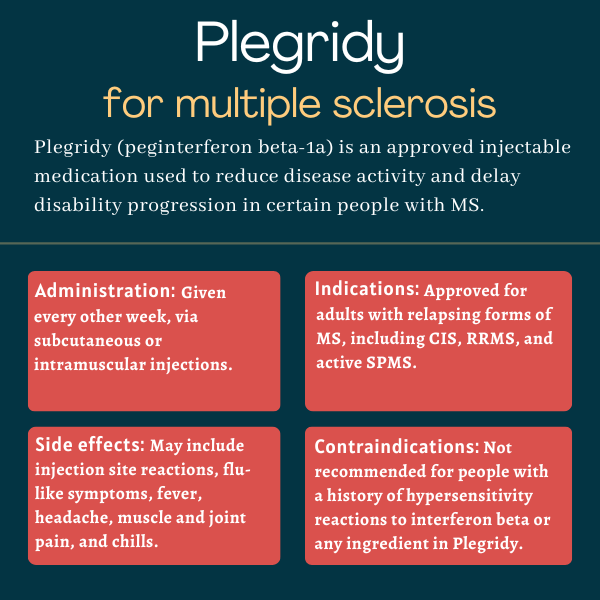FAQs about Plegridy
Plegridy was first approved by the U.S. Food and Drug Administration in August 2014 as a subcutaneous injection to treat relapsing forms of multiple sclerosis (MS). It is indicated in the U.S. for clinically isolated syndrome, relapsing-remitting MS, and active secondary progressive MS. The intramuscular formulation was approved in 2021.
Data from several observation studies have not found an association between exposure to interferon beta medications before conception or in early pregnancy with a higher risk of fetal issues or major birth defects. Where clinically needed, Plegridy may be considered for use during pregnancy, but patients who plan to become pregnant should discuss this possibility with their healthcare providers.
Interactions between Plegridy and alcohol have not been reported to date. However, alcohol may exacerbate some side effects of Plegridy, such as liver injury, so patients are advised to discuss with their healthcare team whether it is safe for them to drink alcohol.
In clinical trials, significant benefits from Plegridy were reported after one year of treatment, but results may have been evident for some patients in earlier assessments. It is difficult to predict when and how someone will respond to a medication, so patients should talk with their healthcare providers to better understand how Plegridy can help with their unique situation.
Hair loss (alopecia) was a common side effect experienced by patients on Plegridy in clinical trials. Although more rarely, weight gain also may occur as a result of kidney damage caused by the medication. Patients should inform their healthcare provider if any unexpected symptoms develop.
Related Articles

 Fact-checked by
Fact-checked by 






